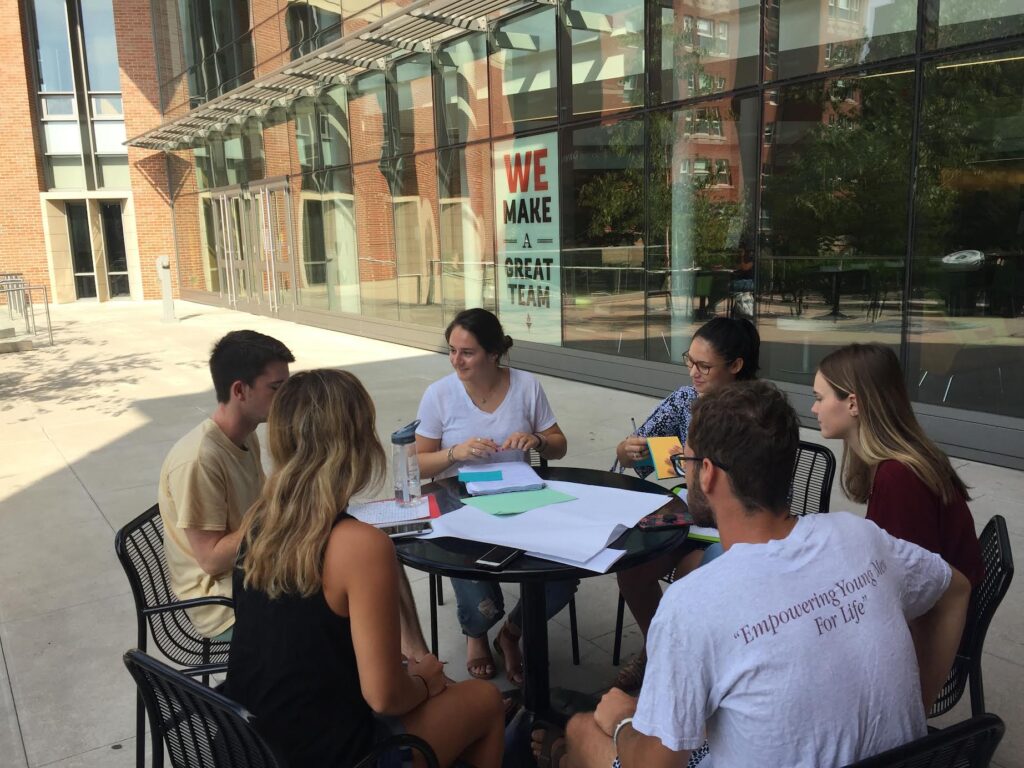Civil Discourse Digital Commons
Resources for Facilitating Dialogue Across Differences
Conversations for Change is meant to facilitate dialogue across differences. Learning to listen, empathize, and connect are essential for overcoming the increasing level of division and polarization in our society. But authentic and constructive conversations also do something else: serve as the foundation for collective action to solve complex problems.
This carefully curated commons builds upon the DID Walls and is meant for educators, leaders, and practitioners interested in creating spaces for a set of democratic practices that bring people together for productive dialogue. This site draws upon the theory and practice of deliberative pedagogy, a shift towards a more collaborative, participatory, and inclusive method of teaching and learning.
This site is a living document. We welcome your feedback, input, and ideas for creating the most useful digital resource for engaging in civil discourse.
Contact Us
Dr. Nicholas Longo
Professor of Global Studies
401.865.1207
nlongo@providence.edu
Dr. Quincy A. Bevely
Vice President of Institutional Diversity
401.865.2889
qbevely@providence.edu
Practicing Democracy Toolkit
Develops skills for facilitating groups
Develops skills for sharing personal stories that call others to act
Asset-Based Community Development
Develops skills for focusing on assets in communities
Develops skills for building mutual and public relationships
Naming and Framing and Asking Strategic Questions
Develops skills for discussing and solving complex issues
Practicing Democracy Toolkit
World Café: A dynamic, collaborative dialogue technique that allows for global movement to support conversations surrounding societal issues.
Exploratory Discussion: Small group conversations to emerge diverse perspectives and alternative possibilities based on three areas: community conversations, educational discussions, and developmental discussions.
Reflective Structured Dialogue: A research based framework which helps people interrupt dysfunctional dynamics, build relationships across differences in societal challenges, and professional mediation and conflict resolution.
Open Space Technology: A guided dialogue that uses meaningful topics and themes that inspire individuals to stay committed and intrigued to the discussion and next steps.
Intergroup Dialogue: A focus on dialogue being ignited from people with differing social identities that use their resources and experiences towards collaborative action and change.
Network Builders
Braver Angels:
Leading the nation’s largest cross-partisan, volunteer-led movement to bridge the political divide
Constructive Dialogue Institute:
Psychology-based educational tools help people discuss complex and divisive topics with ease,
even when they disagree
Institute for Scholars and Citizens:
Mission to ensure that young people gain a deep understanding of our history, culture,
government, institutions, and current affairs from diverse sources and perspectives
Interfaith America:
Inspires, equips, and connects leaders and institutions to unlock the potential of America’s
religious diversity
Greater Good Science Center:
The Greater Good Science Center’s Bridging Differences initiative mixes science and storytelling to help address one of the most urgent issues of our time: political and cultural polarization.
National Coalition for Dialogue and Deliberation: Innovators in dialogue and deliberation help shape facilitative leaders through an array of resources and conferences.
National Institute for Civil Discourse: A nonpartisan organization that leads the way in promoting healthy and civil debate across many areas.
Best Reads
Emergent Strategies by Adrienne Maree Brown
I Never Thought of It That Way by Monica Guzman
Think Again by Adam Grant
Practicing Democracy: A Toolkit for Educating Civic Professionals by Nicholas Longo
Creating Space for Democracy by Nicholas Longo and Timothy Shaffer (Eds)
Democracy in Higher Education
American Democracy Project, American Association of State Colleges and Universities (AASCU): A highly respected resource used by administration and faculty to lead trainings, create initiatives to best support students of diverse backgrounds, and increase dialogue and deliberation within higher education.
Bonner Foundation:
provides colleges and universities with a model for a college access program that uses best
practices for student success.
Campus Compact: National coalition of colleges and universities committed to the public purposes of higher
education
Imagining America: An artists and scholars focused site using publications to enhance the way higher education views the world and systemic issues.
Places to Gather
Frontiers of Democracy Conference: Topics vary annually, but robust democracy in multiracial societies is a forefront topic.
National Intergroup Dialogue Institute: an opportunity for faculty and staff of higher education institutions to learn the philosophy and model of intergroup dialogue
Living Room Conversations:
We connect people across divides – politics, age, gender, race, nationality, and more –through guided conversations proven to build understanding and transform communities.






